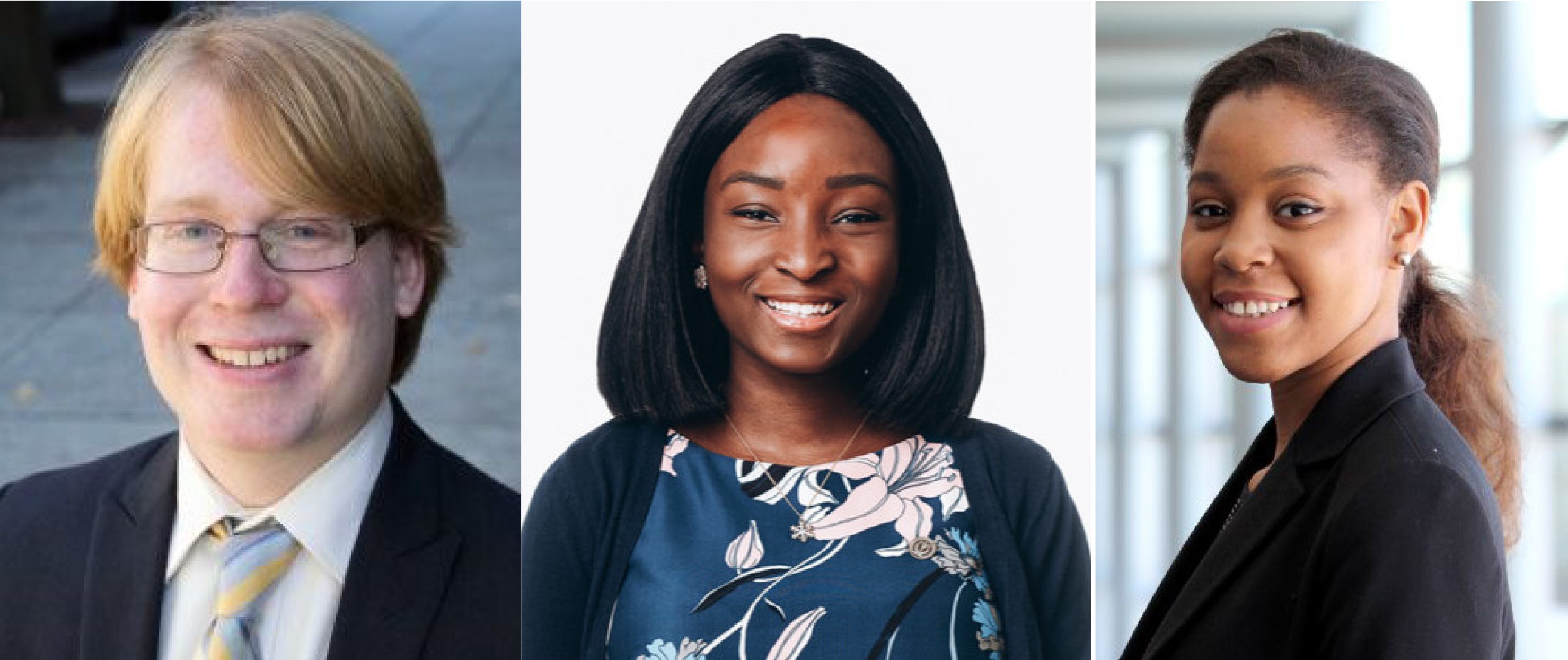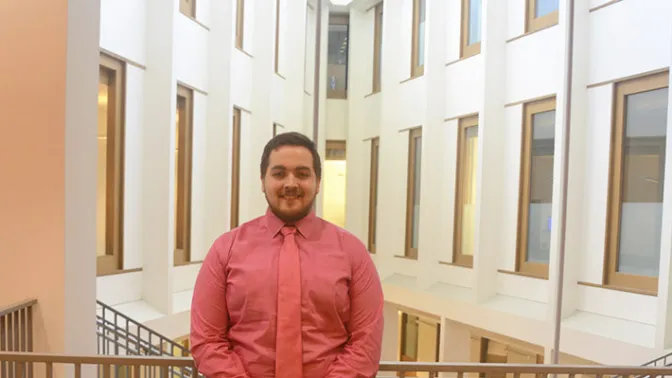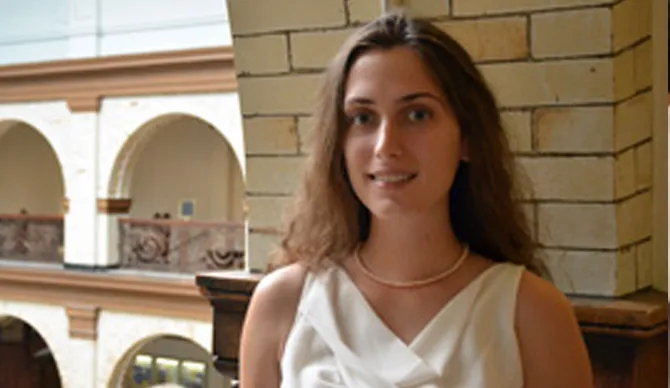
What Can You Do With a Degree in Economics?
Whether you’re looking to inform key business decisions, impact government policy, rise in the ranks of healthcare administration or pursue any opportunity that involves critical decision-making, a degree in economics can pave the way for a wide range of career opportunities in nearly any field.
Drexel students who’ve studied economics have landed at top companies, essential roles in the public sector and some of the most competitive graduate programs in the country. With skill sets ranging from statistics and econometrics to micro and macroeconomics, undergraduates in Drexel LeBow’s School of Economics are positioned to become leaders in their fields, graduating with a mastery of the principles of cause and effect, a crucial aptitude for sound decision-making, and diverse, real-world experience through consulting courses and the Drexel Co-op program.
Hear from three Drexel LeBow graduates working in the private sector about the skills they gained through their pursuit of an economics degree.
Shalom Ikhena
Degree: BSBA (Majors: Economics, Business Analytics & Finance)
Class Year: 2018
Co-ops: Private Wealth Management Co-op at Goldman Sachs, Marketing Co-op at SAP America and Tax Intern at Pricewaterhouse Coopers LLP
Current Title: Technology Consulting Associate
Company: PwC
Location: Chicago, Illinois
Why did you choose to pursue a degree in economics?
I had always enjoyed economics in high school. It was the only subject that made sense and for which understanding came easily to me. I developed an interest in the way it allowed me to understand the world: how our wants and needs shape supply and demand, not only on a small scale, but also the economy at large.
Were you aware of the career paths that a degree in economics would allow you to pursue?
I wasn’t entirely aware going into college what career paths were available to me. I figured that a degree in economics could unlock a variety of doors depending on what I decided to specialize in (i.e. in the private or public sector). However, I did not know my current job existed and was a possible path to follow and explore.
What is your current position, and how do you apply your education in your current work?
I am currently a Technology Consulting Associate at PwC. My economics degree, paired with my added majors in finance and business analytics, equips me with a unique insight on the job every day. In working with our clients, not only do I understand supply and demand and how that plays a role in the firms’ profitability, but I also understand the accounting jargon supporting their operations. With this knowledge, I have a holistic approach to analyzing the company’s situation and can offer meaningful contributions on the best ways to provide technology-backed solutions to our clients.
How do you see your career growing and evolving beyond your current work?
I see my career eventually evolving into the social enterprise stratosphere. I would like to further my economics expertise and use it to affect policies in my home country of Nigeria. I also plan to begin teaching women who have been survivors of abuse or social inequality on how to create wealth, start businesses and manage their finances.
Jacob Adamcik Degree: BS in Economics Class Year: 2016 Co-Ops: Quantitative Research Co-op at The Glenmede Trust Company, and Private Placements Co-op at Susquehanna International Group LLP Advanced Degree: MS in Systems Engineering at University of Pennsylvania Current Title: Quantitative Research Analyst Company: Glenmede Trust Company Location: Philadelphia, PA
Why did you choose to pursue a degree in economics?
I started Drexel as a computer engineering major and enjoyed the challenge of it but was unsure if I really wanted to work in that field. I had read the “Freakonomics” series of books by Stephen Dubner and Steven Levitt in high school and found them incredibly interesting—so I started signing up for some economics electives at Drexel. The coursework was extremely interesting, leading me to switch majors.
Were you aware of the career paths that a degree in economics would allow you to pursue? Initially, no — and this really did pose a challenge when applying for my first co-op. I had a mixture of engineering and economics coursework and had a hard time finding a position. Other than working in academia, government or policy think-tanks, I was unaware of how broadly applicable economics can be. During the process of applying, the Steinbright Career Development Center helped me branch out and realize that I could apply for a wide variety of positions.
What is your current position and how do you apply your degree in your current work? I am a Quantitative Research Analyst at Glenmede Investment Management. Although sometimes quantitative investing is associated with complex, “black-box” models, our investment models always have roots in economic principles. The analytical skills I developed from the mathematics concentration of my degree have proven invaluable as well.
How do you see your career growing and evolving beyond your current work? Since I started in my career, my responsibilities have really branched out. In the beginning, nearly all of my time was spent working on the investment models. In only three years since, I now sit on a handful of committees and have a much wider view into the operations of the firm. I can only imagine this process will continue and my responsibilities will continue to broaden.
What are you currently researching? How do you see your research evolving? A hot topic in the investment management industry for the past few years has been sustainability or “Impact Investing.” A lot of my time has been spent analyzing data on the subject, finding ways it may be incorporated into investment models and the changing ramifications of doing so.
What inspired you to pursue further study? Coming from an economics background rather than a financial one, I decided to enroll in the Chartered Financial Analyst program after completing my undergraduate degree. Many of my coworkers hold the CFA designation, and I felt it would fill in some knowledge areas I did not have in my degree. In addition, I’m enrolled part-time in a Systems Engineering master’s degree at the University of Pennsylvania to keep expanding my technical knowledge—focusing on optimization techniques and garnering new ideas from signal processing. Taken together, I feel these programs have both broadened my knowledge and made me a better researcher.
Lola (Olufunlola) Bakare Degree: BSBA (Majors: Economics, Finance and Business Analytics) Class Year: 2018 Co-ops: Administrative Associate Co-op at The City of Philadelphia, Audit Services Analyst Co-op at Bristol Myers Squibb Company and Fund Management Co-op at FS Investments Advanced Degree: MS in Finance at Massachusetts Institute for Technology Current Title: Consultant Company: Deloitte Location: New York, New York
Why did you choose to pursue a degree in economics?
I had a taste of economics in my high school, and it was a subject I enjoyed and was really good at. Learning about the ways in which various economic environments work was super fascinating, so I decided that was what I wanted to study in college. I wanted to study a subject I enjoyed and loved, so economics was an easy choice.
Were you aware of the career paths that a degree in economics would allow you to pursue?
To be honest, when I first decided I was going to study economics, I was not aware of the career paths available. However, as I researched more about the field, I discovered the kind of doors it opened, and this made me even more excited. I realized it is such a broad topic and can be applied in various positions in a variety of industries, so the possibilities for me were endless.
What is your current position, and how do you apply your degree in your current work?
I am currently a consultant at Deloitte, and my economics degree helps me to think broadly. My projects focus on strategy and positioning, so I am constantly weighing different strategic options for my clients and seeing how this would impact their business in the current economic environment. Given my understanding of economics, I am able to be more effective in my role and use the skills from the degree to assess my strategic decisions.
What inspired you to pursue further study?
I believe knowledge is power, and it can open many doors for you. I decided I wanted specific doors opened to me and decided that gaining more knowledge through a further degree was my route. I also love learning and being in new learning environments, so this was also a fun decision for me.
To learn more about economics degree offerings for prospective undergraduate students, visit the School of Economics’ page.

